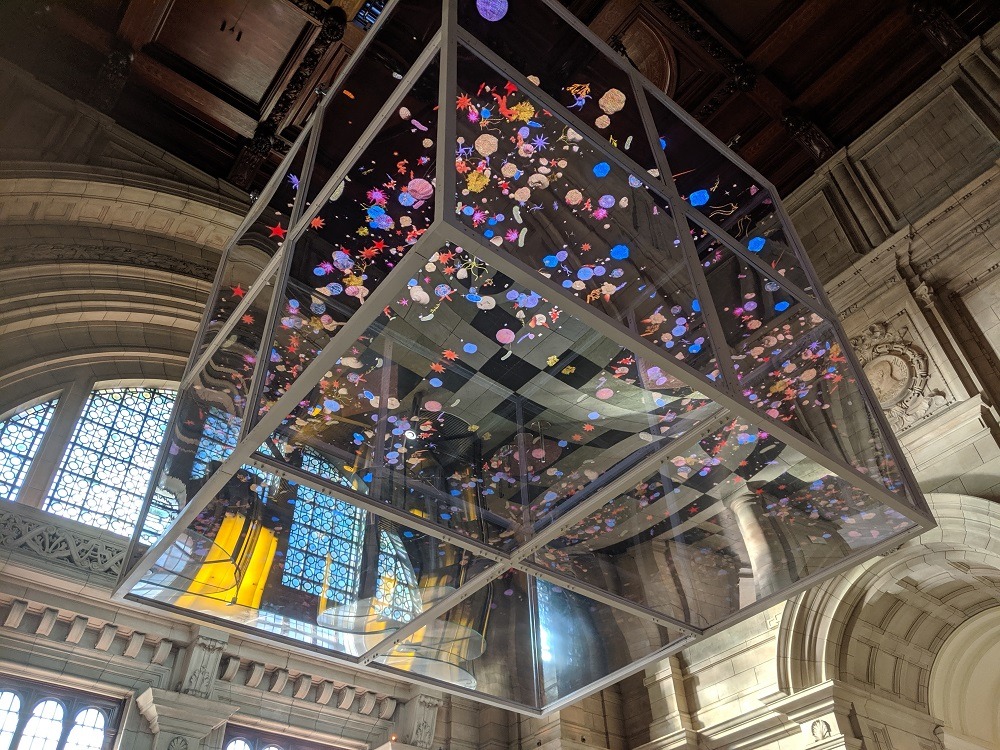Launching the second phase of its 'Plastics Cloud' programme, SAP has teamed-up with architect Sam Jacob to create the ‘Sea Things’ art installation to inspire conversation about the 'plastics problem'

Currently, some $10bn worth of packaging annually flows through the SAP's Ariba Network (Credit: Pixabay)
German multinational software company SAP has unveiled the next phase in its “Plastics Cloud” pilot programme, with the goal of reducing and ultimately eliminating single-use plastics.
Initially focused on collecting data from across the UK plastics supply chain, the next phase will see interactions with its cloud-based business-to-business marketplace, SAP Ariba, to help create a global platform for suppliers of recycled plastics and alternative materials.
Currently, some $10bn worth of packaging flows through the Ariba Network every year.
SAP Ariba’s global vice-president of sustainability and supplier risk solutions Padmini Ranganathan said: “Even a small portion of global spend on packaging redirected to pre-certified suppliers of recycled plastics and alternatives can have a tremendous impact, ranging from the livelihood of waste pickers around the world to the environment and quality of the end products.
“The Ariba Network together with cloud-based procurement solutions, can help channel recycled plastic to a new recycle market economy.
“This empowers supply sources to build trusted buyer partnerships while positively impacting the environment and delivering value to brands.
Plastic Cloud programme from SAP to connect buyers with new suppliers
One area where SAP hopes the Plastics Cloud can used, is to enable buyers to connect with new recycled plastics suppliers and others certified by organisations.
SAP also believes it will allow brands to connect with new recycled plastics and alternative supply sources via waste picker communities.
Plastic supplier Bantam Materials’ director Raffi Schieir said: “80-90% of ocean plastic starts on land, hence, incentivising collection from at-risk coastlines around the world will significantly reduce plastic contamination of our oceans.

“Processing that plastic back into the highest quality materials at industry-required volumes, along with the certified traceability that OceanCycle provides, will drive meaningful impact.
“This effort also helps our customers achieve their sustainability targets, and provides a true benefit to the environment that consumers will appreciate.”
SAP, WWF and National Geographic’s Ocean Plastics Leadership summit
The development follows on from collaborative efforts made by SAP with major consumer brands including Procter & Gamble, Coca-Cola and Nestle to find solutions to scale recyclable procurement, and improve the social and environmental impact of their products.
This work has been done via the Ocean Plastics Leadership Summit, alongside charity the World Wildlife Fund and TV network the National Geographic.

Hosted in May 2019, it connected leading organisations in the plastics supply chain to highlight new initiatives that can address contemporary challenges and inspire partnerships.
SAP UK and Ireland’s managing director Jens Amail said: “At the core of the plastic problem is the economic value of plastic waste.
“For long-lasting change to be effective, we need to both innovate into new materials as well as increase the value of our existing plastic waste to divert waste streams away from the natural environment.
“Being a responsible business is no longer a ‘nice-to-have,’ it’s an imperative.
“SAP has worked relentlessly in the past 10 years to make our customers and partners run better, greener and ultimately improve people’s lives.
“I am proud that, with this initiative, the UK is at the forefront of innovation in that field.’’
SAP and architect Sam Jacob partner for the London Design Festival to create ‘Sea Things’
In an effort to raise awareness of the plastics problem, SAP have worked with architect Sam Jacob to create art installation Sea Things.
Exhibited as part of the London Design Festival, the piece will be located at the grand entrance of the Victoria and Albert museum. It will explore the role of design and technology in reducing ocean plastics.

Speaking to NS Packaging, SAP’s head of sustainable business innovation in Northern Europe Stephen Jamieson expressed hopes it will stimulate conversation around design sustainability.
He said: “Given the half a million visitors that come to the design festival each year, how can we help to provoke, to stimulate, to help designers to take a pause of thought and reflect on, not just their role in terms of how they design but also their role in the wider system.
“The reason behind this exhibition is to raise up the dialogue, how do we all collaborate better, how do we all work together better, what are some of the practical things we can be doing now, those are the sorts of questions we want to be provoking through this week.’
“Second to that is the work that we are doing on the Plastics Cloud, where we can actually make real, meaningful commitments ourselves and meaningful developments ourselves to help our customers to innovate away from these problems.’’
